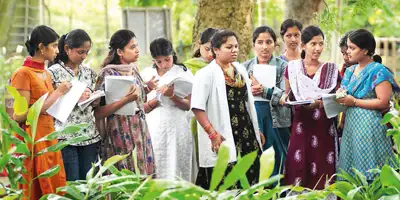

Ayurved Apnao Ngo
Ayurveda, an ancient system of medicine from India, is gaining recognition not only for its holistic approach to health but also for its educational initiatives through non-governmental organizations (NGOs). These NGOs play a crucial
role in promoting Ayurvedic education and practices, particularly in underserved communities. By integrating traditional Ayurvedic principles with modern educational methods, they offer a comprehensive curriculum that includes
herbal medicine, diet, and lifestyle practices.
These organizations often run workshops, training programs, and community outreach efforts to spread awareness about the benefits of Ayurveda. They work to bridge the gap between traditional knowledge and contemporary
health needs, empowering individuals with the skills to manage their health naturally.
Why Ayurved Education :
Ayurvedic education is essential for several reasons. Firstly, it offers a holistic approach to health, emphasizing balance between body, mind, and spirit, which is increasingly relevant in today’s fast-paced world. By understanding Ayurveda, individuals can learn preventive measures and natural treatments, potentially reducing reliance on synthetic medications and their side effects. Additionally, Ayurvedic principles encourage sustainable living and the use of natural resources, aligning with modern needs for environmental stewardship. Educating people about Ayurveda fosters self-care and personalized health management, empowering them to make informed choices about their well-being. Furthermore, Ayurveda’s integration into educational curricula supports cultural preservation and the appreciation of ancient wisdom, bridging traditional knowledge with contemporary health practices. Overall, Ayurvedic education enriches personal health, supports environmental sustainability, and preserves valuable cultural heritage.
Donate us to achive our goal
that they cannot foresee.





